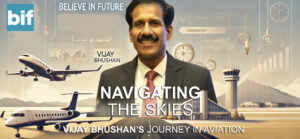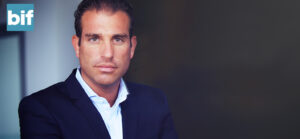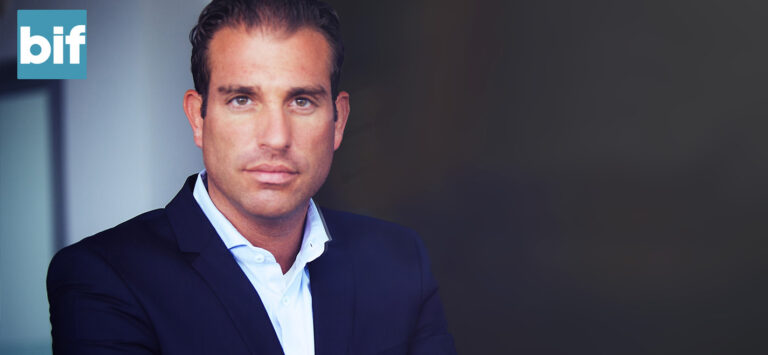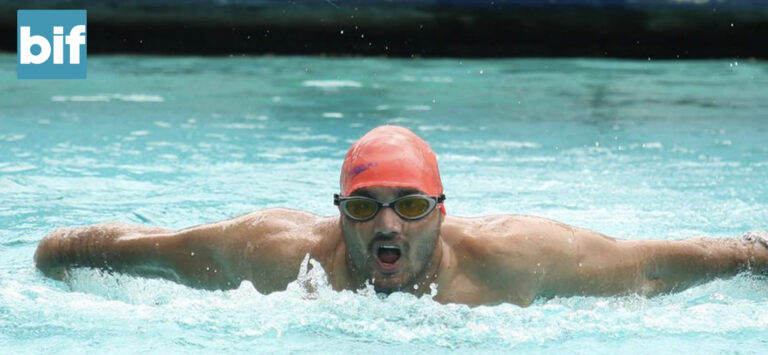How were you as a student?
As a student, my earliest school memories are not the fondest, to be honest. I experienced a lot of bullying, largely due to being of mixed race. My father is Marathi, and my mother is Tanzanian, which confused many of my classmates. They couldn’t understand why my hair was curly or why my skin was the shade it was. I often felt pressured to choose one identity over the other, which made me a target for bullying. I ended up changing schools three times because of it. Eventually, I had enough and decided to stand up to my bullies, putting an end to the harassment.
In terms of academics, I struggled to focus because I didn’t know what I wanted to do in life. While other kids seemed to have their career paths figured out, I was clueless. My mother, a veterinarian, hoped I would follow in her footsteps, but I didn’t share her passion for medicine. I excelled in biology but didn’t enjoy chemistry or physics. I did well enough in my classes to pass high school, but my grades weren’t exceptional because I lacked a clear goal. I felt overwhelmed by the pressure to choose a career path without knowing what I truly wanted.
Even after finishing school, I struggled to find direction. People expected me to have it all figured out, given my achievements as an adult. However, becoming an air traffic controller—an intellectually demanding job—wasn’t a straightforward decision. I had no idea what I wanted to do, and that’s okay. I graduated in 2012, but I see students today facing similar challenges, if not more, due to the multitude of career options available, particularly in fields like social media.
To any student grappling with uncertainty about their future, I want to say: you’re not alone. It’s okay not to have all the answers right now. Take your time, explore different paths, and trust that you’ll find your way. Good luck on your journey.
What about your favorite memories from your childhood?
My fondest memories all revolve around my grandmother, whom I affectionately call Nanny. As a mixed-race individual from my mother’s side, I’ve always referred to her as Nanny, a term I later discovered originates from India. Though I’m not entirely sure of my Indian heritage, my grandmother holds a special place in my heart. Every warm, positive memory I have, even as an adult, involves her.
Currently, my grandmother is in town, and spending time with her feels like stepping back into my childhood. The love I have for her is immense. She played a significant role in raising me while my mother was starting her business and my father was working shifts in the police force. My grandmother is my comfort, my sanctuary, the person I turn to when I need solace. Simply hearing her voice can brighten my day.
One of the things my grandmother loves to do is cook. She had her own small business where she prepared homemade meals and sold them. I used to assist her in the kitchen, earning the title of her “chopper” as I cut vegetables while she handled the cooking. Some of my happiest moments are spent with her in the kitchen, working side by side.
In essence, my cherished memories all stem from the warmth and love I share with my grandmother, especially when we’re cooking together.
What about any teacher who had particularly strong influence on your life?
It would be my ballet teacher. So I did ballet for 14 years, and her name was Miss Cheryl. She was somebody who was such an integral part of my life because from the age of four until 14, while I was going to school and didn’t know what I wanted to do with myself, going through all the bullying, she was the constant that stayed throughout my entire childhood. She taught me discipline, resilience, and how to be determined and have an end goal to focus on because we would have ballet examinations with the Royal Academy of Dance at the end of each ballet year. So I finished everything she got me to reach a point of distinctions. That was the one thing I was really good at. I would always get a distinction in my examinations, and it was an international examiner who would come and do the examinations. So it was also confidence-building for me because I’m like, I’m not doing that great in school, and my mom’s expectations of me were, if you can get 100, you should get 110, and I’m busy scoring 80s and 90s. So it was never good enough. But in ballet, I knew I was good enough. And every time I would think, oh, I can’t, for example, do a pirouette, which is spinning on one leg, or do a split in the air, she would teach me how to do something that I thought I wouldn’t have been able to do. So she gave me the confidence I didn’t know that I needed at the time. And now when I look back, Miss Cheryl was everything. Because if my parents were too busy to pick me up from ballet, she would go out of her way to drop me home because my grandma, as she got older, wouldn’t have been able to drive. So she was just always there, and I knew I could rely on her. Even I used to work my way to pay for the ballet classes. So when I turned 18 and didn’t know what I wanted to do with my life, I decided to take one year to just try and figure it out. And I told her, I said, can I come and teach ballet with you just so I can pass the time and spend time with you and see if this is an avenue that I would enjoy? And I did that for about a year with her and really enjoyed it. So she was just there for me with whatever it is I needed outside of school.
Apart from your school memories of bullying you, are there any good memories from your graduation?
When I got into high school, that’s actually when my good years in school started because I again went into a new school. Priyanka Chopra’s book says, every time you have to go to a new school, you can recreate who you are. And that is exactly what I did in the last school. I said, I am not the girl who got bullied. I am not that person. I’m going to show up, and I’m going to be loud and proud. And that’s exactly what I did.
So that is when I started to make more friends. That lasted throughout the whole high school career that I had, and I really enjoyed high school. That’s the time when I really had the best time, and my mother put me in a school that is mixed with boys and girls, where usually there is gender segregation after a certain grade in this country. So she said to me, the reason for that was, I don’t want you to be shy around the other gender because they’re the ones that you have to work with later in life. It’s good that she did that, actually, because I work in a male-dominated industry. And while potentially, hypothetically, some women would shy away from being the only girl in the building on a night shift, I’m over there, and I’m not even phased. So my mother’s vision in that sense definitely helped later in life, and it helped me excel in a career that’s already so stressful because I didn’t have to sweat the small stuff.
High school was great because I got to make friends, and for some reason, all my friends were always the boys, and I was one of the boys always. Maybe that’s why I wasn’t making that many friends because I was stuck in a classroom full of girls.
So what was your dream as a child?
I wanted to have a cool job again, like I mentioned before, but I didn’t know what it was. I just remember thinking, like every time I watched a spy movie, I’m like, oh, that’s so cool. It’s so dangerous, but so cool. And I didn’t want to become a spy because it looked exhausting. And you can’t make friends, really. But I knew I wanted to have a really good income. That was important because financial stability and security were something that I really wanted because we didn’t really have that growing up. And also, I wanted stability in the finances that I got.
So I wanted to have a job that I know I’m going in and no matter what, I get my salary at the end because my mom having her own business, you know, when you have your own business, you can’t. There are some months that are good, some months that aren’t. And my mother was very transparent with me growing up, so I knew if we had a bad month, I would also be worried. How will we pay for our school fees? How are we going to pay for our home and on certain months?
So I just wanted good money, stability, and it would be nice to have a cool job. Along with that, so that’s what I wanted. But what exactly it was, I had no idea. I remember what I used to do is, I would say random jobs. Whenever adults would ask me when I was younger and I would see what job excited the adult the most. So I’m like, oh, I would love to be a doctor. And everybody in the room is like, oh my God, you’re so ambitious. I’m like, maybe that’s what I should do just to test the waters. And then in another circle of adults that I’m introduced to, what do you want to be? I want to be a vet like my mom. That is so sweet of you. So you can take over the business. And I’m like, maybe that’s what I should do. So it was constantly changing, and I was just testing the waters. Every time somebody asked me to see what would also excite me as much as it excited them. But there was really nothing. So. Yeah.
What about your hobbies and interests as a child?
Definitely ballet and dance. So I did ballet, Bollywood, jazz. I was the firstborn, so my mom experimented with me. I did horse riding, I did swimming, so there were a lot of activities that my mom tried.
For example, if you throw so much to a wall, like water balloons or whatever, maybe only one balloon will stick to the wall actually. And that one balloon was like ballet. So that’s what I stuck with consistently throughout. At one point, I thought I preferred hip hop more, but I remember I was dancing and there was like a small stage that the teacher would stand on in the dance class, and she told us she’s like, oh, you can dance however you’d like. And I was like, I’m going to use this prop. So I went and I got this big exercise ball and I’m like, I’m going to use this in part of my dance. And I did a dance with the ball, and I was like, throwing it around and using it as a prop. And then I slipped and I slid and I went face-first into the stage, and I smashed my nose and yeah, I was like, I think I’m going back to ballet. There is more structure in ballet. So that’s what I went back to.
So I decided to cancel that out. But it was mostly dance and being around animals. I know it’s not a hobby, but I used to go to work with my mother every weekend because she wanted to instill a work ethic in me very early, and I would just love being around the animals. And I had a farmer’s tan because I was always in the sun, so I was with the animals. Loved that. To this day I have three dogs, and that’s me putting a limit on how many animals I have. Just because animals and dance were everything to me growing up.
What were the most important values you wanted to teach your family?
There was a lot of chaos and turbulence growing up, so it would have been nice to have some silence. It would have been nice to have some discipline because I had to become an adult very early, and I feel like I played mostly the role of a parent very early on, so I don’t have memories of being a child. In my childhood, I was always doing damage control between my parents, always trying to make sure my grandma didn’t get involved because, you know, she was older, always being the protector. So it would have been nice to be protected instead.
Where did you started your professional journey from?
I started my professional journey at 19. If I think about the application process from when I was 17 to 18, to when I actually joined and got into the program, I was 19 years old. So that’s when it started.
what was your first task in your professional journey?
To survive. So basically, air traffic control is an extremely stressful job because you have hundreds and thousands of lives in your hands at any given moment in time. At the age of 19, I wasn’t even technically an adult when I started to learn about what I needed to do in order to perform the job. As you mentioned, the success rate is extremely low, and I work in one of the most complex and busiest airspaces in the region, making it very difficult for people to make it into the program and then complete it.
The content that you’re learning is so difficult but is also presented in a time-pressured manner because they want to assess how well you can learn under pressure. If you struggle to learn knowledge with time pressure, how can they trust you to control airplanes? I remember the first week was the toughest because we had to memorize something like between 400 to 500 completely new things in the span of a week, and we were tested on almost 100 new things every day. If you didn’t pass, you couldn’t progress to the next stage.
The first week was the toughest, but now when I think about it, it’s the easiest content or knowledge that I have learned. For example, every airport has a location indicator, which is a four-letter code that you have to know by heart by the end of the next day before your examination. Similarly, each airline has a three-letter code that you must memorize, so that when you’re working, you don’t have to think; you have to know it quickly. The pressure and difficulty at the start were really intense.
Thankfully, I had very good study methods, and those study methods helped me during that time. I used flashcards for memorization, knowing that I had to write with a blue pen so it stuck in my brain better. I tried every study tactic that I knew or read about, including chewing gum, to help me get through that week. And then I used them for every week that followed.
So from where did you get an idea to be an air traffic controller officer?
The idea came from applying to as many jobs as I possibly could. So around the time I was 16 or 17, I noticed that my mom had been working extremely hard throughout my entire life. I don’t remember my mother not working, and I started to notice that she was starting to get a little tired. She did have me a bit later in life, and I could see that happening. I realized that I felt the need and the urge. As the eldest child coming from an ethnic home, I felt that I had to step up, financially provide, and take care of everybody. Again, I was constantly the protector, the carer. So I made the decision because while I was working with my mother, part of the reason for that was because I wanted to contribute to the finances of the home, pay for the schooling for my two younger sisters, pay for our home, and take care of my nanima. I took on that responsibility young, and when I was not going to school, I could help contribute more by working and answering the phone calls, and everything.
So I realized that I didn’t want to become a vet. I did not want to do this job. I was very good at it because we generated a good amount of income while I was working. So I had that entrepreneurial managerial spirit, and I knew I had that in me, but it wasn’t what I wanted to do. And also, the farmer’s tan wasn’t doing it for me. So I just made the decision that I’m going to try and find a scholarship program that will pay me while they train me because, as an Emirati, they have certain programs where they’re looking for Emirati talent to do such jobs like air traffic control, pilot with certain airlines, aircraft engineers, urban planners. I applied to every single program that I could find, but because I just passed in school, they needed certain percentages. I think it was like 85%, and I scored something like 84. And that was the cutoff. So it was taunting me. This 1% killed me and air traffic control, I think they needed 80. So I was like, all right, I need to get into this program.
I found out about air traffic control from my best friend in school, Andrew, and his father was air traffic control in Sharjah. Andrew was suggesting why I shouldn’t apply to air traffic control in Tanzania. When the conversation came to me, I thought, why can’t I apply here? He said, you have to be Emirati. I said, I am Emirati. People always assumed I was Tanzanian because my mom was heavily involved in my life, and she’s African, so I’m African. So when he found out I’m Emirati, he said, there are hardly any Emirati women doing this; apply, you never know what will happen. So that’s where I found out about air traffic control. But I was looking for a scholarship similar to.
So I got rejected or didn’t get a response from multiple programs. It was very disheartening, very disappointing. And that’s something I want to highlight because it wasn’t all rainbows and glitter. Yes, I got in, and it was easy, all because I started young. That year and a half, almost two years, was because I graduated. I didn’t graduate early because of my intellect. I graduated early because my mom started me young. So 17 to 19 ish is when I was working with my mom. Air traffic control was the last one to get back to me, and I told myself, I have to get into this program no matter what.
I got invited to do the entrance examinations, which was English, math, and physics and a psychometric test, all time-pressured. I had a word with myself. I said, you have to make it. This is your last shot. And I well and truly did. I found out that I got into the program, and then that is when that journey began with the intense week that I mentioned to you and all of that. I mentioned this entire story because I feel it’s important to know that it wasn’t easy to get there in the first place. I was emotionally constipated; I didn’t cry; I was just very upset and very down the entire time until I got something. And when I got something, I had to make sure that I definitely made it through because only one other Emirati lady had made it through the program, which is good, actually. It was much better for me because somebody paved the way, and now it’s my turn to also join the workforce in that specific industry. Now we have more girls coming through, and I get to be their instructor, which is such a beautiful, full circle moment ten years later.
So it all worked out, and I now realize that this is what I was meant to do because not everybody can do such a job, and not anybody can be good at this job. So the fact that I can do both, and I’m glad that I got into it, and it is a cool job. So young me is very happy because I did end up getting what I wanted in that sense.
So among the all roles that you play as an air traffic controller, officer, motivational speaker, emcee, podcaster, artist, which one is your favorite and how do you manage to play so many roles with the artist?
This is actually some art on my wall that I drew during the pandemic, as you can see. So, I only started drawing during the pandemic, so I haven’t actually drawn in a very long time. That’s how I could do that, because then you just upload the art online and see if it sells or not. That’s how I manage it. It’s passive.
If there are certain friends that want me to draw a piece for them, I set very clear boundaries on what my capabilities are, my availability, and my mental capacity as well. So, I let them know I’m like, ‘Let me know what design you want, send me a Pinterest board, and leave me alone. Let it marinate. Eventually, you might get a piece, and that’s going to be your gamble.’ Sometimes I generate the piece of art in less than an hour, sometimes I generate it in six months.
The most flattering thing for me is that I’ve had people tattoo my art on their bodies, and I’m like, ‘That’s forever. Wow, you really love me.’
Podcasting is something that I’ve decided to focus on more at the moment. So, I’m starting a new podcast where I include guests called ‘Press Pause with Johanna.’ Just yesterday, we recorded the teaser and the intro video, and I’m having my first guest, inshallah, coming tomorrow, so that’s a very new venture. I actually haven’t spoken about it anywhere, so you have this exclusive information.
I feel it’s important to focus on one thing at a time. With podcasting, public speaking comes into that with air traffic control and people having an interest to know more about it. That’s also where I get the public speaking gigs from.
I have very clear boundaries with what I do, so I let people know, ‘Hey, I’m a shift worker. My only available dates are so and so. If you can accommodate or if your event falls on those dates, I can make it. If not, I can’t. And it’s as simple as that. I will not stress myself out more because my job as an air traffic controller comes first, and if I didn’t have that, I wouldn’t have the other opportunities.’
The way that I can manage doing all of it is by having set boundaries. I can only do it on certain dates because I’m not going to skip work to do an event. So, if the event falls on my days off, I will be there. I’ll be there from the start till the finish, no problem, but only if it’s on a day off and if I’m available. If my grandma is in town all of February, I haven’t accepted anything. I accepted this only because I promised you months ago. But that’s it. Otherwise, my nanny is in town. I haven’t accepted anything to do this month except for the podcast and everything because she gave me her blessing to do it. So I was like, ‘Fine, nanny’s approved it,’ and that’s why I’m doing it. And I’ve only set two days of the month to do it while she’s here.
Regarding my education, I have the flexibility to do it within four years to complete a one-year degree. So, I work six days on, four days off. If the course falls within my four days off, that’s when I will do the course. Whichever module comes, if it falls within my time off, I’ll do it. If it doesn’t, I won’t. I’ll just make sure that I finish it within the four years. In four years, the probability of me finishing a one-year degree, hoping it falls on my days off, is a high possibility.
So that’s what I do. Activational speaking. This goes under public speaking. If the kids in school want me to come and speak, the beauty of shift work is I’m off during the week if it falls on that time. So, I do that for the kids. And that’s actually one of my favorite things to do. I like to go to schools and speak to children because that moment of seeing them click of a new profession that they could potentially get into is everything. Because the limitations of what they’re taught is you can become a pilot and that’s like, ‘Wow, the biggest thing.’ But the pilot is told what to do by air traffic control. So you could be that person.
The fact that I can go and teach that to young minds and help spark inspiration, that is what brings me the most joy. Because I love children, I love working with them, I love being around them. And I feel like that the innocence and the purity that they have is just, I just love it. I just want to absorb it. So, if I have to choose from all the other things I do other than air traffic control, it would be doing the motivational speaking with the kids. That’s the favorite. That’s my favorite one. Because it falls under public speaking, but specifically in schools is my favorite.
How have been your journey? What were up and down in your journey as an air traffic controller?
The ups would have been that I succeeded, and the men in my batch, we all started young, so at the time we were boys and girls and we grew into men and women. We all have a very strong bond. And these five gentlemen were and still are everything to me. We were so close because I joke, we trauma bonded with how difficult the course was, you know? So, those were definitely the highs.
I also went and studied in the UK, so they sent us for four months to do part of our training there. I ended up being put with a host family, and the lady who took me in, her name was Joy, and she was amazing. So that was also part of my high because I had a support system in a country that was foreign to me while I was studying for a very difficult career. So that was definitely part of the highs.
And now as an instructor, as well as working as air traffic control, I really enjoy working with the students and teaching them. So at the moment I have a female student, and teaching her and giving her the knowledge that I have and watching her thrive day to day is one of the highs of the job, and I absolutely love it because I feel like I’m empowering her to be able to protect the skies of our country.
When it comes to the lows, it is a very stressful training program. It’s not something I will ever sugarcoat because it is so tough to persevere for two and a half to three years studying with the pressure that we had. Yes, we were only studying from a book and presentation slides, and we were only working in a simulated environment for a while. But the pressure was on because you have to pass each check every week in order to move on to the next phase. And then eventually you are working with real airplanes. You’re adapting to shifts. You are working with almost a different instructor every time due to rostering and staffing. So you have to adapt based on what that instructor likes because you have to work with that person, and it’s their license you’re working on. So it’s quite difficult to consistently adapt.
We have to be adaptable, but adapting every day to a different person, to a different environment, to different pilots that you’re speaking to was really intense, but it’s definitely all the difficult parts, definitely added to personality building and character building because it’s made me a lot stronger. And then I know how to teach my students to build that resilience over time, instead of the way that I was taught. I have a slightly different method just because I’m like, this is what they have to deal with. So I teach them the way to be resilient and to figure out how they can use their own personal strengths to handle such a job.
How was your first experience on this stage as a motivational speaker?
I remember my legs buckled, and I was truly nervous because I do have a fear of public speaking, actually. Believe it or not. And I hired a public speaking coach to help me overcome the fear and gain structure in my speaking. So the TEDx speech was also a motivational speech that I had done, and it was in a school. So it was like a perfect trifecta of everything I love about public speaking. But I remember feeling extremely nervous. I remember thinking to myself on stage that I’m so happy that I practiced the speech 300 million times because I didn’t have to think about what I was saying. I just went on autopilot. That’s how I felt, and when I was done, I remember thinking everything. When I hired my public speaking coach, he asked me, she’s like, what do you want to gain out of working in this course with me? What is your wildest dream in public speaking? I was like, oh, I’d love to do a TEDx talk. And then a TEDx speech is the same principle. It’s just not in the US under a TEDx conference. It’s they get the license to do it outside of that. So I ended up doing a TEDx speech, and after that I was thinking to myself, I’m like, I finished that. I was on a high, you know, like, whoa, I got to do what I wanted to do. And then afterward, I’m like, okay, now what? I did what I was set. I did my wildest dream in public speaking. So now what? And that’s how it felt. So those were the feelings that I went through.
Traffic control is supposed to be a male dominated field. How difficult or easy was it to make your name in it? And how do you, as a woman feel about it?
So I was greatly underestimated, which I realized was actually a good thing because even if I showed an ounce of intellect, I was shocking people. I think it’s all about perspective. You can choose to say, “Oh my God, everyone is underestimating me. What am I supposed to do?” But if you choose to change the narrative and say, “Everyone is underestimating me; let me prove everybody wrong and have that fire in you,” you’re going to make it. And that’s exactly what I did. I wasn’t focused on what everybody else thought of me or the number of women at the time. I just focused on the fact that I had a quiz in two days, and I had to focus on that. I had to get through the next air traffic control session to be one step closer to the end goal, and that’s all I focused on. I also didn’t have the time to focus on “Oh no, it’s all men around me” because I knew I had to make it. Otherwise, my sisters and my mom wouldn’t have a steady income coming in.
My mom stopped working when I got into the air traffic control program because she was really struggling with everything she was going through, and she had to quit. So I was the only stream of income going into the house. And if I didn’t make it, my mother and my sisters would struggle. So I didn’t have the time to worry about, think about, or be conscious of the fact that I’m working in a male-dominated industry. I had to make it for my girls. And that was my only focus. If anything, I just felt like I had my blinkers on to succeed because it was not just about me. I had a responsibility to the skies, but I also had a responsibility on the ground to my family because they were relying on me.
What’s that one thing you love about your profession and journey the most?
The 30th of every month is payday, and I also work with the students, helping them to reach the finish line. I realized that I love teaching. Miss Cheryl taught me early on that I have a knack for teaching, and it’s something I genuinely enjoy. I love educating and ensuring that my students successfully complete their journey. It’s been approximately three and a half years since I started my air traffic control instructor journey, and I maintain a 90% success rate. Teaching brings me a lot of joy, and it’s something I’m good at.
However, since I was a kid, money has always been important to me. I’m not shy to mention that. Some people say they do it solely for the love of the job, but it’s too intense for that. There needs to be another win.
Who is your mentor in your professional journey?
When I was starting my career, I had more mentors, you know, with the instructors that were supporting me. At the moment, I have different mentors for different things. So, I have a life coach who helps guide me and steer me, and kind of keeps me focused on what I want to do next in my life. So, she is a mentor to me. There’s also a leadership coach that I got introduced to, and it was through a previous mentor that I had at work. She also helps me gain perspective on what it is that I would like to do in life, you know, and what I would like to do to further my career in aviation. And outside of that, since I have multiple avenues and talents that I could tap into, it’s all about seeking that mentorship as well, you know? So, some of them are introduced to me because of previous mentors, and some of them I seek out. I sought out to get a life coach to help guide me through everything. So, those are the two very incredible, very strong women.
According to you, how would you define success and what is the role of hard work, smart work and luck in achieving success?
I believe hard work is required in order to achieve success. I also believe that perseverance, persistence, and consistency are key ingredients for success. You can’t simply say you want to do something and expect success without taking action to achieve it. Therefore, I think the most important thing in gaining success is having an end goal or something to focus on in your endeavors.
Once you figure out what you want to do and what you are focused on, only then can you work backward and determine the steps needed to reach your goal. However, the crucial aspect is not just thinking about it; it’s about devising a plan and actually executing it. Many people are dreamers, but they fail to take action and execute their plans.
So, you must be brave enough to execute, as the quote you mentioned at the beginning suggests: “Don’t say one day, make it your day one.” It can be very intimidating because change, whether positive or negative, is scary. But you have to decide if it’s worth it for you.
if you are able to get hold of Time Machine, which phase of your life would you like to roll back?
I would like to rewind to the time I spent in the UK because I was certain about my life’s direction then, and I was residing in a home with Joy. I call her my British mother, and she provided me with tremendous support and stability, which I hadn’t experienced while growing up.
Returning to the UK would mean reliving that period, minus the academic pressures. It would be comforting because navigating through that program was incredibly stressful and challenging. It was a tough journey.
So, without a doubt, I would revisit the time when I was 19, studying in the UK, forming friendships with my batch mates, and laying the foundation for my career. Living with Joy during that period was invaluable.
That’s where I would go back to, career-wise, for sure.
What does leadership mean to you? And according to you, what are the qualities of a good leader?
Leadership doesn’t necessarily have to come from people who are your direct managers or hold the title of manager. It can be someone who is inspiring and actively involved in creating change, almost like an underdog. Often, these are individuals I’ve encountered who may not hold managerial positions but demonstrate leadership qualities. They are the ones who genuinely care for others, want them to succeed, and provide them with the necessary tools for success.
In my view, that’s what true leadership is about. I’m fortunate to have a leader like that in my life, which is truly a blessing. Therefore, I believe that just having the title of leader doesn’t automatically mean possessing the qualities of one.
What’s your say on artificial intelligence?
I think it’s great because I use it day-to-day. My whole house is equipped with Alexa, and I enjoy interacting with it to get answers and assistance. ChatGPT also helps me a lot. I acknowledge that there’s definitely a dark side to such technologies because, as with everything, there are both positive and negative aspects. However, I choose to leverage these technologies to my advantage, especially in tasks that I enjoy doing, such as avoiding closing the curtains by instructing Alexa to do it.
I know it may sound lazy, but using my voice is a natural part of who I am. Whether it’s at work, where I communicate with pilots using my voice, or at home, where I interact with my house, I find voice control to be convenient and efficient. I love using technology to enhance my life and simplify tasks. For example, while cooking in the kitchen, I’ll ask Alexa to set a timer for ten minutes for cooking rice, despite my grandma’s disapproval.
I appreciate how technology, like ChatGPT, helps me refine my ideas or brainstorm without needing to share them with others who might potentially take credit for them. This aspect is particularly valuable to me. Additionally, I’m enthusiastic about how advancements in communication technology, such as smartphones, continually make communication easier and more accessible. Overall, I’m supportive of technological innovations that contribute to improving our lives.
what are do’s and don’ts? You should remember while starting your journey as an air traffic Controller officer?
The key is to be absolutely certain that it’s what you want. Even the slightest doubt, like 0.000001%, can derail your efforts because the journey is incredibly tough. You have to truly desire it because it requires immense perseverance.
As for the don’ts, well, it’s not for the faint-hearted or the weak. You need to have a tough mindset to handle the challenges. I’d advise against taking it on if you feel you’re not cut out for it. I don’t say this to discourage anyone, but it’s important to recognize the difficulty level.
If you’re a woman entering this field, expect even more obstacles because you’ll be underestimated and tested in ways men might not face. So, ensure it’s what you genuinely want because the journey won’t be easy.
It’s helpful to surround yourself, if possible, with a support group and people who share your goals. During my training, I wasn’t alone. I had my batch mates who supported me, and Joy in the UK who played a significant role in my success in a foreign land. Back in Abu Dhabi, my batch mates and I leaned on each other, along with mentors and instructors who believed in me.
Choose to focus on those who uplift you rather than those who doubt you, especially if they claim it’s not a career for a young woman. Surrounding yourself with the right people is crucial.
So, the ultimate advice is to be certain about your choice. Otherwise, you’ll face unnecessary struggles, wasting time and resources for everyone involved.
What would you like to say to graduates who are just entering their professional journey?
It’s important to enjoy the fact that you’ve achieved something, as it’s natural to always think about what’s next. However, it’s crucial to take a moment to celebrate your wins when you do achieve them. So, if you’ve successfully entered a career, take the time to celebrate that accomplishment. After celebrating and being present in that moment, then you can start thinking about what’s next.
Failing to celebrate your achievements and not appreciating what you’ve accomplished is unfair to yourself. You’re doing yourself an injustice because at one point, you wished for what you have now. It’s common for people to feel unhappy even after achieving what they desired.
For example, I experienced this after achieving my TEDx goal. I felt a sense of emptiness, wondering what to do next. However, I was reminded to simply enjoy the moment. So, I took my mom, husband, and best friend out to celebrate, choosing to revel in that moment instead of worrying about what’s next.
After enjoying the celebration, I moved on to the next thing. Therefore, it’s important to celebrate your wins because you once wished for what you have now. Take the time to celebrate your current achievements before thinking about what’s next.
What advice would you like to give to women who want to enter in the same line in which you are?
Apply regardless, because you lose nothing by applying. This advice isn’t just for women; it’s for anyone interested in air traffic control. Just because it’s tough doesn’t mean you shouldn’t try. If you apply and progress through the selection process, moving on to the next phase, and keep passing the phases, why not give it a shot? You have nothing to lose. You might discover a career you excel in.
In school, I was often told I had potential, but they didn’t know where to direct it. Little did I know, it was the perfect recipe for becoming an air traffic controller. So, if you have even a 1% interest, go ahead and apply. You lose nothing by trying.
And this applies not just to air traffic control, but to any endeavor you’re interested in pursuing. If there’s an application process, the first step is to apply. If you don’t knock on the door through an application, how will you ever get in?
what was the advice which you received when you started your professional journey?
I was told that I should persevere because I would gain a lot of benefits as an individual, so the amount of time off I would get would be good. This advice came from an instructor and mentor who started to notice that I was starting to lose faith in the middle because it was exhausting. Going through the whole journey was very draining, and he sat me down and said, “Joe, you have the ability to make it, so just persevere. The time off you get is going to be amazing.”
He explained that if I take all my annual leave and calculate my days off, I would only actually work six months of the year, spread out with a very different schedule than what normal people have. But even with just six months of work, I would be getting paid for the whole year, and the time off I have would be good. I would be financially stable, able to take care of my loved ones, and I would have a career that commands immense respect from those who know about it. The moment people hear that I am an air traffic controller, they would immediately respect me for my achievements and intellect. He emphasized that I deserved that.
This was the best advice I received, and it served as the motivation I needed to carry on. It was exactly what I needed to hear at the time. It just goes to show that having the right people in your life to motivate you is crucial.












+ There are no comments
Add yours